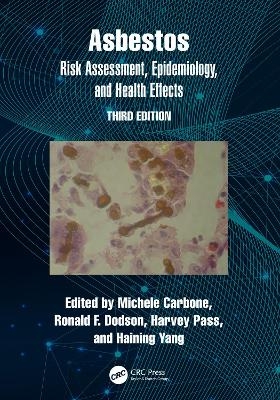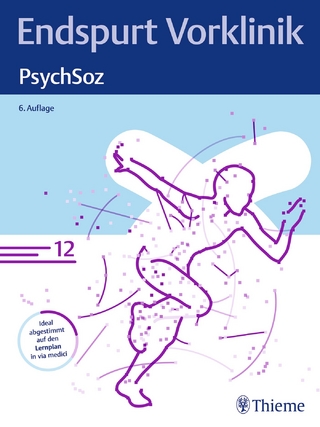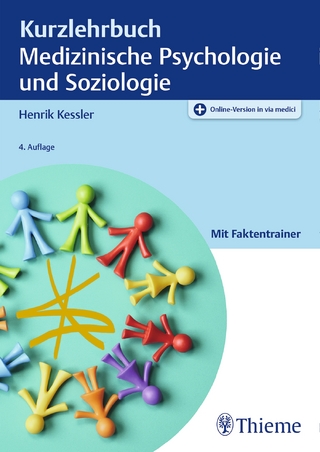
Asbestos
CRC Press (Verlag)
978-1-032-52106-0 (ISBN)
Asbestos: Risk Assessment, Epidemiology, and Health Effects offers a key text on the evolving information regarding asbestos and human health. Now in its third edition, this bestseller explores the pathological complexities of asbestos-related disease and examines how asbestos induces diseases in biological systems. The book also discusses the types of instruments and methods available for evaluation of the content of asbestiform minerals in products, air, water, surface areas, and tissue. It explains the relevance of each of these applications and gives readers the tools to evaluate data in the future.
Edited by leading authorities on the subject and with contributions from a team of international experts, this book takes a cross-disciplinary approach and an authoritative review of the history, pathology, epidemiology, sampling, and analysis of asbestos. Backed up with photos and numerous diagrams, tables, and photographs, it features case studies, methodologies, and sampling/analytical schemes that put learning into context. Fully up-to-date and featuring four brand new chapters covering asbestosis and immunity, asbestos litigation and surgical and non-surgical management of mesothelioma, this book remains the most comprehensive source of information on asbestos and the only guide the reader will ever need to own.
This essential text will appeal to any professional at any level who requires the latest expertise in dealing with asbestos. It suits researchers and practitioners alike, as well as those in the fields of law, health, education, hospitality, emergency response, building management and maintenance, construction, safety, insurance, and industrial hygiene.
Michele Carbone is Director of Thoracic Oncology at the University of Hawaii Cancer Center, USA. With degrees from the Medical School of Rome, University of Rome and University of Chicago, Dr. Carbone specializes in pleural pathology and mesothelioma. Dr. Carbone discovered that heterozygous germline BAP1 mutations modulate susceptibility to asbestos and cause mesothelioma. Carbone’s research is a combination of fieldwork in the third world and in remote areas of the USA, sophisticated molecular genetics work in his laboratory, and vital clinical diagnostic work. Ronald F. Dodson’s research interests include the use of light and transmission electron microscopy in identification and/or effects of particulates in tissue and other biological environments. He retired from academia in 2005 and established his own company, Dodson Environmental Consulting in Tyler, Texas, USA. He continues to conduct research in this role as well as write scientific and biomedical publications and serve as an expert in his field as requested by the private sector, academia, federal agencies, and international agencies/scientific organizations. Dr. Dodson’s research/ academic career included serving as a reviewer for scientific journals and serving as an Advisory Board Member on the Texas Department of Health’s committee that was charged with developing the State Law governing asbestos-related activities in public buildings in Texas. Harvey Pass is Professor in Thoracic Oncology in the Department of Cardiothoracic Surgery at NYU Langone Health’s Perlmutter Cancer Center. He serves as Chief of the Division of Thoracic Oncology at NYU and oversees a laboratory at Bellevue Hospital where much important research work funded by the National Cancer Institute takes place, including the new Mesothelioma Pathogenesis Program Project. Dr. Pass has held numerous positions in professional associations, has served as a guest reviewer for major medical journals and publications and has served as a consultant to private companies as well as public agencies and foundations. Haining Yang is Professor in the University of Hawaii Cancer Center at the University of Hawaii at Mānoa, USA. Her research work focuses on the pathogenesis of mesothelioma, a malignancy often related to exposure to asbestos or other carcinogenic mineral fibers. She discovered that a protein called high mobility group box 1 protein (HMGB1) kickstarts the growth of mesothelioma cancer cells once the individual is exposed to asbestos. As a result, Dr. Yang explored targeting these proteins as a therapy method for mesothelioma. She was one of the recipients of the American Association for Cancer Research (AACR)–Landon Foundation INNOVATOR Award for International Collaboration in Cancer Research in 2008. She also received the iMig Research Award in 2018.
1. The History of Asbestos Utilization and Recognition of Asbestos-induced Diseases. 2. Asbestos Analysis Methods. 3. Analysis and Relevance of Asbestos/Elongated Particulate Burden in Tissue. 4. Evaluation of Asbestos Exposure. 5. Mechanisms of Asbestos Carcinogenesis. 6. Epidemiology of Mesothelioma in the World. 7. Environmental Exposure to Asbestos and Cancer. 8. Asbestos and Immunity. 9. Medical Findings Related to Asbestos Exposure. 10. Mesothelioma in 2024: What's New?. 11. Pathologic Diagnosis of Mesothelioma. 12. Bioinformatics Approaches to Studying Diffuse Malignant Mesothelioma. 13. OncoTherapy in Mesothelioma. 14. Surgical Management of Mesothelioma. 15. Asbestos Related Cancers. 16. Asbestos Litigation and Trust Funds in the United States.
| Erscheinungsdatum | 10.07.2024 |
|---|---|
| Zusatzinfo | 20 Tables, black and white; 17 Line drawings, black and white; 82 Halftones, black and white; 99 Illustrations, black and white |
| Verlagsort | London |
| Sprache | englisch |
| Maße | 178 x 254 mm |
| Gewicht | 948 g |
| Themenwelt | Studium ► 1. Studienabschnitt (Vorklinik) ► Med. Psychologie / Soziologie |
| Naturwissenschaften ► Biologie ► Ökologie / Naturschutz | |
| Technik ► Bauwesen | |
| Wirtschaft | |
| ISBN-10 | 1-032-52106-6 / 1032521066 |
| ISBN-13 | 978-1-032-52106-0 / 9781032521060 |
| Zustand | Neuware |
| Informationen gemäß Produktsicherheitsverordnung (GPSR) | |
| Haben Sie eine Frage zum Produkt? |
aus dem Bereich


